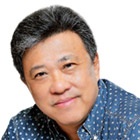The importance of being civil
Today, thanks to social media, just about anyone can now share an opinion in an instant. But Malaysians are in need of clever and intelligent discourse.
Wong Chun Wai, The Star
IT is a mark of our maturing society that we are now beginning to be able to engage in discourse, even on the most sensitive of issues, without causing offence to one another.
The ability to disagree without being disagreeable is to be lauded. Too often, we have seen how individuals or groups prefer to engage in name-calling and verbal abuse, rather than talk rationally about an issue.
I have been a journalist for over 30 years and have also covered the Dewan Rakyat in my earlier years. While there was a fair share of those who spoke just to make sure they got themselves in the news, there were also many outstanding politicians with the gift of the gab who could debate rationally, their arguments punctuated with much wit, and they had the uncanny ability to cool things down when temperatures went up a few notches.
Older Malaysian journalists have told me of their experiences following the great debating skills of our founding fathers like Tunku Abdul Rahman and the earlier Opposition figures like the Seenivasagam brothers, S.P. and D.R., and Tan Sri Tan Chee Khoon.
They were legends who did not have to raise their voices or resort to using racial remarks to make themselves heard. They had class and have deservingly been accorded their place in our history.
Today, we are more exposed to how people engage in civil discourse for a wide variety of issues through different platforms. Democracy has never been so noisy.
Thanks to social media, just about anyone can now share an opinion in an instant. The more savvy politicians too have embraced social media but they are aware that they will never escape scrutiny and, of course, criticism for whatever they say.
But Malaysians are in need of clever and intelligent discourse. They want to read beyond generalised statements found in blogs and on Facebook. Instant responses, often clouded by emotional prejudices, cannot take the place of rational debate.
If anyone, especially a public figure, stands up for something, he must be prepared to square off with someone with a directly opposite view. It’s the same for academics who have to face peer review and cannot simply rattle off their views without being willing to listen, or offer space, to contrarian views.
For Malaysia, we have of late seen an active engagement of views over issues like race and religion. We have seen the emergence of the voice of moderation, as more people, many of them prominent members of society, speak their minds.
I am proud that this media group, which I helm as its chief executive officer, has given fair and equal opportunity to all sides to articulate their views. This is how it should be. So, if we give space to the so-called Group of 25, we have likewise given space to the Group of 32. So long as the debate remains civil, we should allow this to carry on. More importantly, both sides have called for a meeting of the minds on the issues affecting the nation.
It does not matter if even The Star’s Voice of Moderation campaign has been criticised by the Group of 32. We are ready to be criticised by anyone, as long as they back it up with sound and rational viewpoints. We may be on direct opposites but most of us, whatever our beliefs, surely do not subscribe to any form of name-calling and threats.


